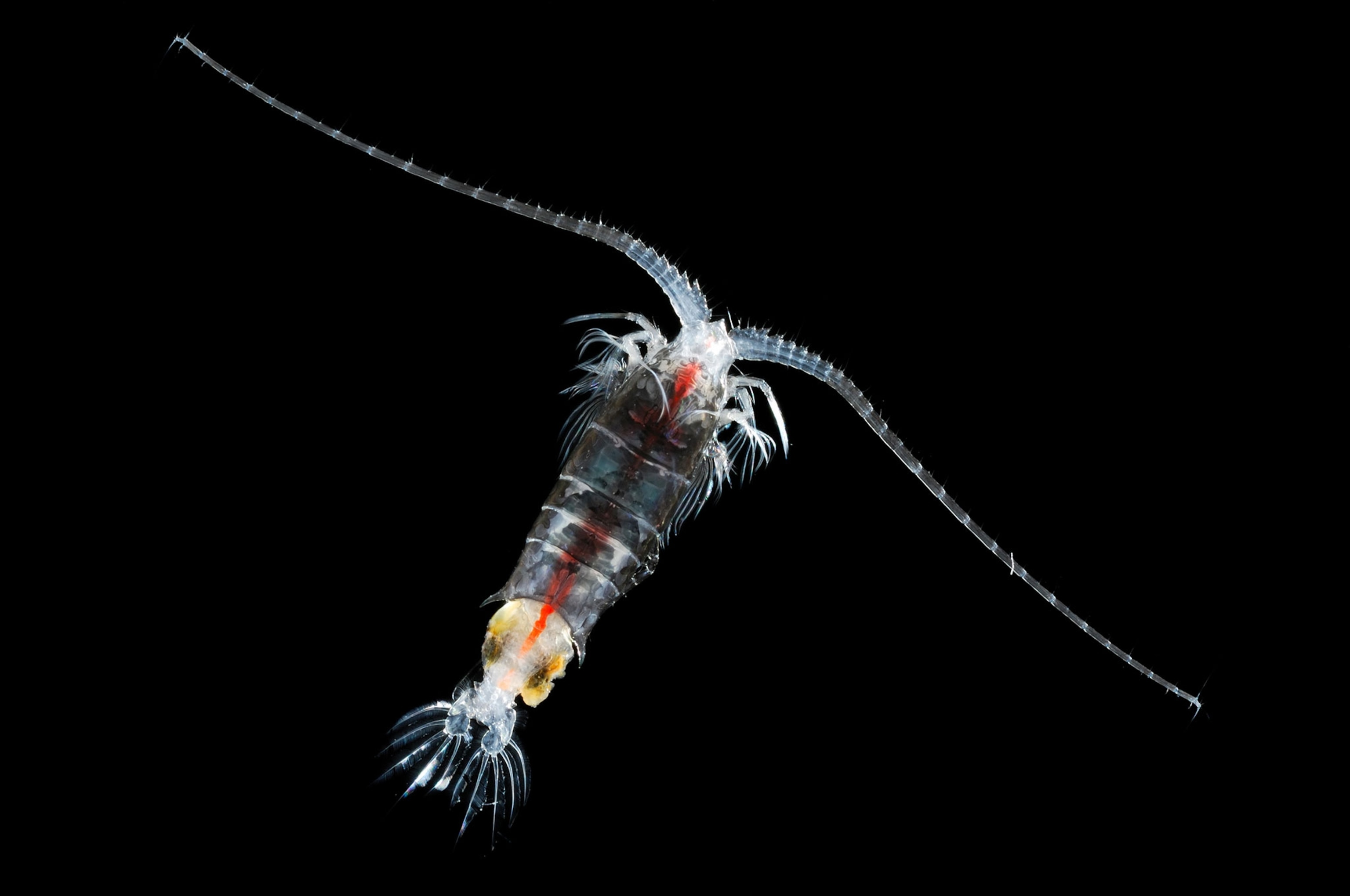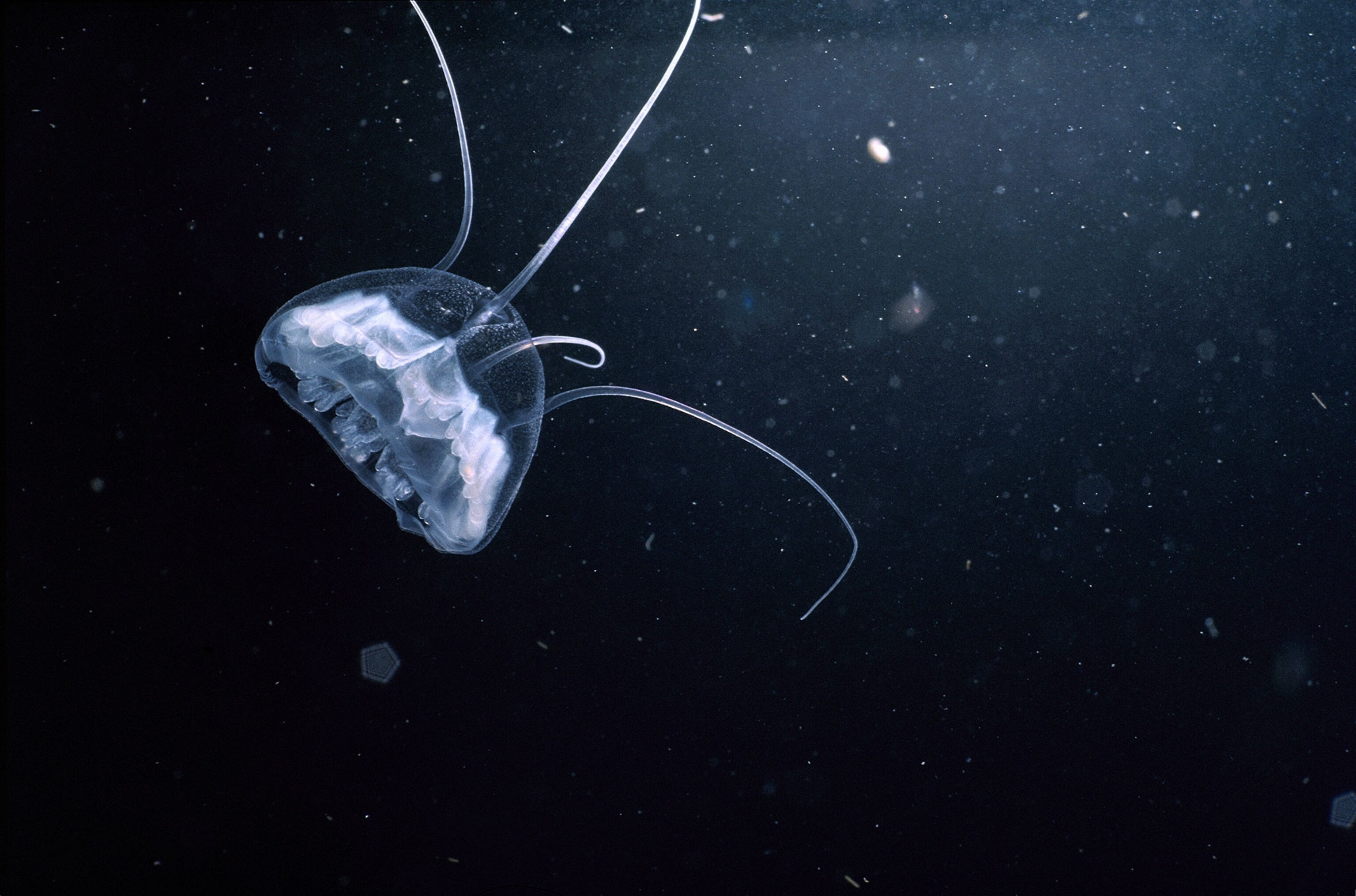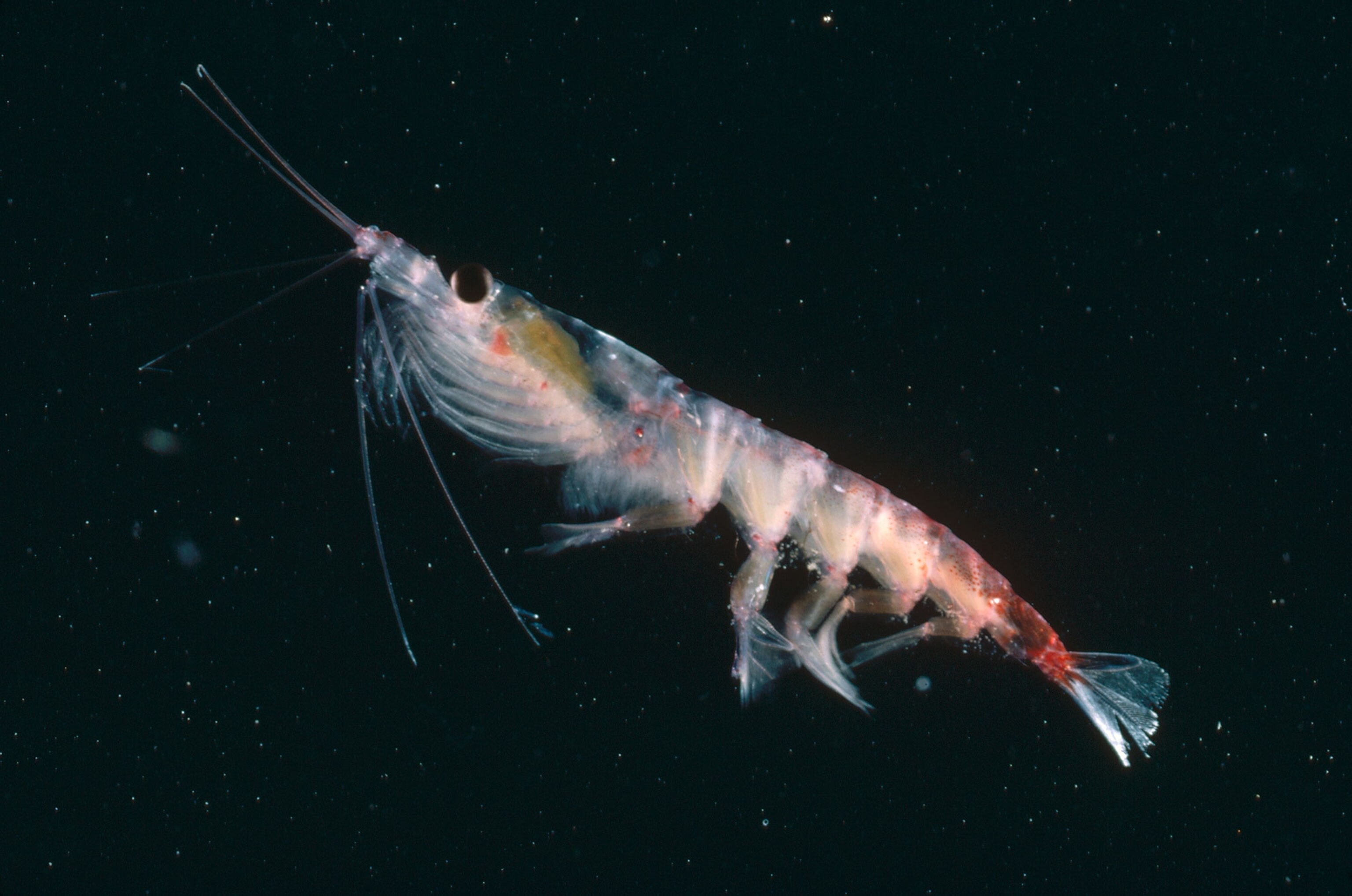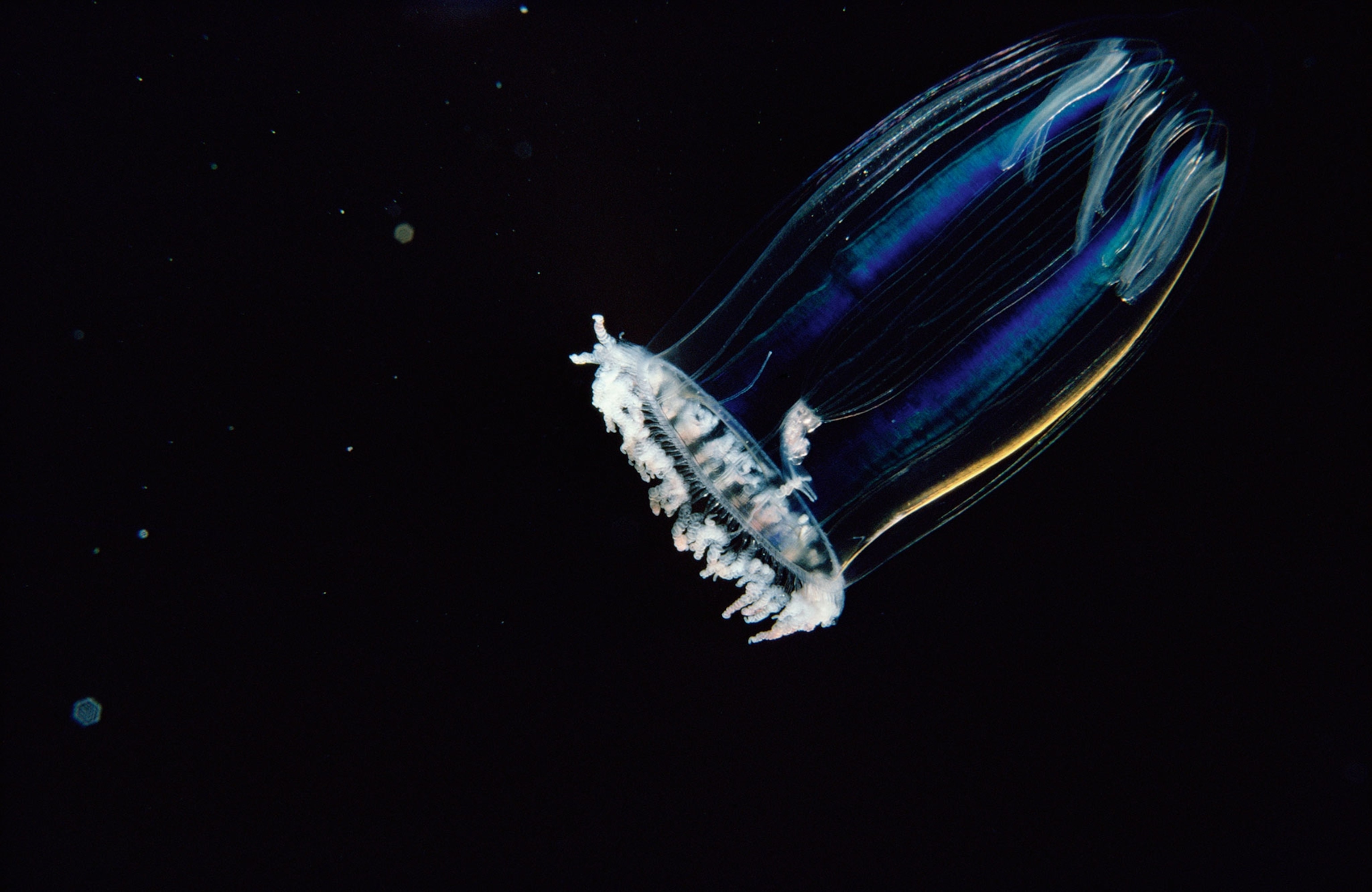Deafening Blasts Kill These Ocean Animals For Miles
A new study found that seismic surveys used to search for off-shore oil and gas deposits devastate the zooplankton in its path.
As the Trump Administration puts forth plans to revive off-shore drilling, some of the smallest members of the ocean food chain could be in big trouble.
To find oil and gas lying beneath the ocean floor, petroleum companies emit blasts of compressed air underwater. These seismic blasts penetrate miles into the seabed and reflect information about any valuable deposits buried below.
These blasts are deafening to animals underwater and are already known to have consequences for marine mammals, many of which depend on echolocation to communicate and hunt. (Listen to a seismic blast recorded by the National Resources Defense Council.)
Now, a study published this week in the journal Nature Ecology and Evolution finds that seismic blasts may also have wide-ranging effects on some of the most critical ocean life-forms: zooplankton. This umbrella term encompasses a variety of grazing plankton that drift through the ocean, typically near the surface. Zooplankton can include tiny jellyfish, crustaceans, and the larval stages of fish.
For their study, scientists from the University of Tasmania and the Center for Marine Science and Technology used an air gun in the ocean off southern Tasmania and collected zooplankton samples before and after the blasts.
"We counted the number of live and dead zooplankton collected in nets using a special staining technique and found that two to three times as many zooplankton were dead following the air gun operations than those collected before," study coauthor Jayson Semmens says in a press release.
The team also used sonar to measure the amount of zooplankton in the area following a blast. Compared with control samples, areas exposed to the air gun saw a median catch decrease of 64 percent. Impacts were observed as far as 4,000 feet from the air gun, a hundred times farther than the previously estimated impact reach of 32 feet.
The find is worrying because zooplankton play a critical role in the ocean food chain.
"Zooplankton underpin the health and productivity of global marine ecosystems, and what this research has shown is that commercial seismic surveys could cause significant disruption to their population levels," study co-author Robert D. McCauley says in the release.
Writing in their study, the authors add that "healthy populations of fish, top predators, and marine mammals are not possible without viable planktonic productivity."
While the study focused on oil and gas exploration in the waters around Australia, its implications resonate internationally.
Earlier this month, the Trump Administration took steps with the National Oceanic and Atmospheric Administration to allow five energy companies to use seismic air guns to search for oil and gas off the U.S. Atlantic coast.
An estimated 90,000 miles could be opened to blasting, and the National Resources Defense Council calculates that 135,000 squares miles of ocean could be affected. Oceana estimates that 138,000 whales and dolphins would be negatively impacted by air guns deployed in the Atlantic Ocean.
The proposal, which is open for public comment in the Federal Register, does note that use of these air guns would lead to incidental effects on marine mammals, prompting some protective measures.
For instance, a spokesperson for the NOAA Fisheries Office of Protected Resources told NPR that steps would be taken to minimize the impact of air guns on marine mammals by "monitoring to detect marine mammals sounds beneath the surface, so we know when they're in the area."
As of press time, NOAA could not be reached for comment on any protections that would be put in place for other forms of marine life.



